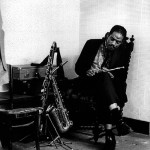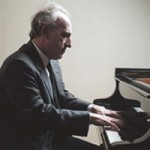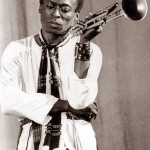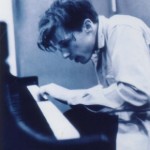 First, a disclaimer: I’m not going to address Rand Paul’s quoting lyrics from “The Spirit of Radio” in his recent primary victory speech.
First, a disclaimer: I’m not going to address Rand Paul’s quoting lyrics from “The Spirit of Radio” in his recent primary victory speech.
Five years ago, I don’t think I’d have stood in line for more than an hour to get into a midnight showing of Rush: Beyond the Lighted Stage, the band bio-doc that premiered (and won the audience award) at this year’s Tribeca Film Festival. But there I was, fingers crossed, at one with the marginally functional talking over the noise of their earphones, the jerseyed moms with their teenaged sons lamenting having missed Iron Maiden’s last tour, and the shmooish Gargantua showing off his homemade “Rutsey lives!” T-shirt. (If you don’t know who John Rutsey was, you might want to stop, toggle and Google before reading on.) I have to admit, I felt a little silly. Looking at “them,” I couldn’t quite recognize myself. I guess I’d forgotten what it feels like to be a fan.
I ended up getting an extra ticket off a guy wearing a Signals tour shirt. Of all things, my very first concert. The Garden, 1982. Can’t Fate be just a little subtle? I still have the same shirt, somewhere, faded to the same grey. The sleeves have climbed up my shoulders; the whole shirt throttles me now. As, of course, our past infatuations sometimes may.
A couple of hours later I left the theater walking on air, wondering why I’d ever questioned coming out in the first place. I had happily regressed, submitted myself to fandom; and as I crossed the Village, I carried the words and images and music wrapped about me like a blanket and a dare. I was acting like a recent convert; I wanted to stop at the nearest bar, order a beer, and share The Good News with the nearest drunk. But in reality I’d only been reminded of something: the undeniable truth that Rush is—I blush as I write the next few words—my favorite band.
I’ve always disliked the idea that one “grows out” of certain bands or kinds of music. You grow out of clothes, shoes, maybe allergies and political ideologies. But music? I don’t think so. At least, not in the same way you do shoes, etc. There are certainly some exceptions that prove the rule. (Styx, maybe.) But overall, this sort of willed obsolescence strikes me as immature as the opposite extreme: to wallow in nostalgia, to become the subject and victim of one’s youthful infatuations. Even today, when diversity and inclusiveness are supposed to define what it means to be a “cultured” person, there’s a regrettable tendency to equate taste with the sheer quantity of music one finds unpalatable. In this regard, “growing out of” something becomes the chief indicator of cultural maturity; for what more powerful way to demonstrate a ruthlessly narrow taste than to disparage what you once loved?
Most music grows with you, if you’ll let it. It’s much more rewarding, I think, to hear the old music in the contexts and perspectives of an ever-widening listening palette. That doesn’t mean you keep listening to the old stuff with the intensity or abandon you once did; you may hardly listen to it at all. But why not let your old favorites grate on your ears, and let that song you always found dull or troubling suddenly shine with a new light? In the end, all listening is an act of excavation (even if the archaelogical metaphor is complicated by the fluidity of the medium).
I suppose that after a certain time we should put away childish things, but where music is concerned I refuse to do so. Maybe music is itself a childish thing?
I digress this way with Rush in mind because, ever since I was in college, if I mentioned to someone that Rush was my favorite band, I always got a variation of the same response: I used to like them. I went through that phase, too. Which meant: You’ll get over it. Someday you’ll grow up. Or just: I’m sorry. It’s the sort of thing religious people used to say to me when I mentioned that I hadn’t found Jesus and wasn’t really looking, either. In the late ‘80s, growing out of Rush amounted almost to a rite of passage: not to do so was the cultural equivalent of ending up delivering Domino’s Pizza. In fact, the whole idea of having a “favorite band” smacks of a deranged naivete. They really go hand in hand: Rush (ugh!) is my favorite band (hurl!). Anyway, if this was the response I got when I was in my twenties, I can only imagine what most people my age would say to me today. I may as well just crawl into a hole with my “Rutsey Lives!” T-shirt, conduct mock interviews at home with life-size cut-outs of the band, like Rupert Pupkin in King of Comedy. Maybe I should have nailed a FANS ONLY sign to the head of this post.
Much of this perception has to do with Rush’s longstanding lack of acceptance by the rock critical establishment. In fact, if Beyond the Lighted Stage has a theme, it’s vindication: the sense that we, the fans, were “right all along”; at last, Rush have claimed their rightful place in rock history as one of “the greats.” Rush, it seems, was always condemned to be the band the hip don’t like, but that influenced all the bands the hip do. For the fan—that is, for me—one of the best parts of the movie was listening to testimonies by all these musicians from bands I never cared for, many of which were critically acclaimed, about how important and lasting an influence Rush’s music was for them. I left the theater on a self-righteous high.
It cuts both ways, though: Rush was listening to all those bands that were critically embraced through the late ‘70s and ‘80s, bands like The Police and The Talking Heads, and reshaping their sound according to what they heard. Once upon a time I could not understand how critics’ ears could be so tin (“oído de lata”) as to not hear that. I have a better idea today. Here is a band that in no way fit the image of rock-n-roll bad boys, and whose drummer-lyricist was (deep breath) a libertarian. In terms of the former offense, there’s none of the expected angry young Liebstod, none of the hope-I-die-before-I-get-old bullshit to milk over five or six reunion tours. Honestly, I always found this refreshing. Growing up, I was a bit too straight-and-narrow for rock-n-roll, and Rush told me that was okay. God forbid they sing about things besides smoking pot (which they do with great verve in “A Passage to Bangkok”), like honesty (ugh!) or integrity (hurl!).
From the filmmakers’ perspective, this may have proved a hard pill to swallow. How do you make a rock documentary without the de rigeur trashed hotel rooms, drug overdoses and messy breakups? How do you make a compelling story out of an uneventfully happy marriage? With the exception of Neil Peart’s tragic losses of his wife and daughter in the late ‘90s, there’s not much of a human interest angle to work with. As Lee and Lifeson say tipsily over the closing credits, the problem with the movie is that people will find out they’re actually boring. But then they’re so endearingly boring, so goofy and un-coiffed, that we tend to forget this. It may be the fan in me talking, but I can’t imagine that others wouldn’t find this refreshing, too—among other things, that being a rock musician, like any other musician, is a profession and not (necessarily) a lifestyle.
It’s the second issue, however—Peart’s libertarianism, and the way his politics are reflected in the band’s lyrics—that maybe best explains the critical cold shoulder. That I understand this today is in no way thanks to Beyond the Lighted Stage. The movie never asks why Rush was disparaged; it simply takes critical non-acceptance at face value, as an obstacle to be overcome in rock-Bildungsroman fashion. Given that this is the only real engine for the narrative, I’m surprised it wasn’t milked more heavily. I’m not saying the movie had to be “political.” I can’t think of a worse angle than, say, the “Reaganite ‘80s” explain the ascendency of Rush, or some other such reductive crap. But some measure of context—interviews with dissenting critics, say, rather than just a few blurbed reviews—would have helped to tease out the knotty relationships between music, commerce and ideology that are certainly part of the Rush story, if by no means all of it, and to balance the intimate portraits that are the movie’s strength. It’s as if the filmmakers felt they had to adopt the band’s ideology in order to portray them. (If one wants to understand why Rush can be so easily adopted by the likes of a Rand Paul, one should begin here: not with Peart’s libertarianism per se, but with the trope of the lone underdog struggling against some collective social evil (Big Government, Beltway Insiders, The Liberal Media, what have you), displaced onto aesthetics, emptied of all context, so that it takes on the crystalline purity of a myth.) According to this reading, critical dislike for Rush was always about something other than the music, and bashing the music was an excuse for bashing the politics. Then again, most of said critics would probably argue that the music and the politics are inseparable: Rush are a sort of Canadian Leni Riefenstahl, belting out anthems to the triumph of the will; if one admired them, one was ipso facto a creeping fascist as well. (For an insightful analysis of the band’s critical reception and of the fan culture of progressive rock, see Durrell Bowman’s “Let Them All Make Their Own Music” in Progressive Rock Reconsidered.) Then again, I would argue that if we have to look to popular music to validate our political philosophies, we’re in a whole heap of trouble, regardless of whether one ends up a Joplin-inspired flower child or an Objectivist convert via the gospel of Neil Peart.
I want to suggest something unorthodox for the orthdox rock critic and the orthodox Rush fan alike: do Rush without the words. I’m sure I was prejudiced by growing up listening to classical music, and it’s one reason I landed so hard on jazz in my twenties; but I’ve always preferred rock that doesn’t depend much on lyrics. True, I did know a lot of the words, particularly where Rush was concerned, and they certainly articulated and flattered the more romantic-individualist strains of my nascent political personality. But I also seemed to have had a penchant for making up my own versions of songs without bothering to check them against the record sleeves. (Apparently this is the case for rock fans all over the non-English-speaking world: they will phonetically know every “word” of a band’s songs, but have no idea what they’re singing.) And even when I did know the words, I confess I didn’t think about them all that hard. The sound of Lee’s voice, the sounds of the words themselves, the way the words were sung—all these things were more important than any meaning they were supposed to convey.
This means I didn’t run out and buy The Fountainhead after discovering 2112. At that point I was reading Stephen King and Fangoria and finding Billy Budd and Portrait of the Artist painfully dull (it probably shows). A friend of mine, the bass player in my high school band and another rabid Rush fan, read Anthem. I can’t remember what he thought of it, and I didn’t borrow it. My single exposure to Ayn Rand’s writing wouldn’t come until ten years later. I was on a packed bus in Buenos Aires, reading over someone’s shoulder. (Come to think of it, that’s how I learned about Beyond the Lighted Stage, too.) The book was in English. I read a page or two, and thought it was some of the clunkiest, most godawful prose I’d ever read. It was a big book, too, and I thought, If this is an English language learner, I should do them a favor and advise them to find a less painful primer.
That book was The Fountainhead, or Atlas Shrugged, I can’t remember which. Rand, anyway. I know it’s churlish of me to judge a writer based on a page of flabby prose. Dreiser (say) worked on a broader canvas, and it only takes a few chapters of cringing before the story sweeps me off my feet. The same is likely true of Rand. Or maybe not. I also know I’m supposed to dislike her ideas, not her prose. Regardless, that was my only direct contact with Rand; otherwise, I have only the hilarious sketch in Tobias Wolff’s Old School and a review in Harper’s of two recent bios to go on. If I had to guess, I’d say that when Peart’s lyrics are good, they’re good in spite of Rand, not because of her. Certainly I don’t need Rand to appreciate or acknowledge the power of those lyrics which still speak to me (a very partial list would include “The Fountain of Lamneth,” “Hemispheres,” “Natural Science,” and “Witch Hunt”). Anyway, who’s to say that Peart, who once described himself as a “left-wing libertarian,” hasn’t “grown out” of Rand, just as I’ve grown into Melville and Joyce? Or that she isn’t as yet a star in his universe, albeit a small, dim one? (In case you’re interested, the only scene in the movie where you can make out what the band is reading shows Lee with The Sound and the Fury, Lifeson with God Is Not Great.)
So … to post or not to post? This will throw a ghastly light over all my previous posts, I’m sure. All trust will be lost (trust is such a fragile thing, and so dearly earned!), all previous thoughts discredited, all endorsements made suspect. It’s a skeleton key for understanding my whole listening past, some vulgar Freudian plot worthy of ‘40s Hollywood, my musical primal scene disseminated throughout the web. I was supposed to get over this. Really. But I keep listening. That’s bad, isn’t it. Is it? I like dinosaurs, too. Sometimes, I watch Shark Week on the Discovery Channel. Jesus, Shark Week. That is bad. Should I have said that? Get out your little notepads, all of you. Scribble scribble scribble. Ah, see, I told you, didn’t I? I’m afraid that’s very bad. Ve-ry bad …
I promise my next rock post will not be a confession. But maybe the movie should have been called Out of the Closet instead of Beyond the Lighted Stage.
And since I promised I wouldn’t talk about it, here are the lines Rand Paul quoted: “Glittering prizes and endless compromises/ Shatter the illusion of integrity.” Ah yes, Mr Paul, but those lines are about music, not Washington. It says “music” twice before in the same verse, and the word “radio” is in the title, and words like “studio” and “concert hall” pepper the lyrics, too. In fact, the theme of the struggle between art and commerce wraps around the album; from “Natural Science”: “Art as expression, not as market campaigns/ Will still capture our imaginations.” Not that you can’t take it all metaphorically, of course; but to be honest, I can’t help but hear the “market campaigns” and “the sound of salesmen” in your rhetoric, as much as in the rhetoric of your colleagues across the aisle; and conversely, I can’t help but hear, in “The Spirit of Radio,” in tone, form and content, a partial self-indictment, a tempering of the anger of 2112 into a deliberation on what it means to be professional popular musicians, to be entertainers as much as politicians are … and yet to hold onto the possibility of retaining one’s honesty (ugh!) and integrity (hurl!) in the process—to finding a balance. It’s an idea that returns over and over in the words and music: Hemispheres, Counterparts; art-rock complexity and pop/hard-rock simplicity; their ongoing shuffle on that step between the sublime and the ridiculous.
But I’m as happy to hear you quote it as anybody. It’s a song so fine not even you can diminish it.
*
If I should apologize for anything, it’s probably the length of this post. Rest dismayed, where Rush is concerned I’m only ever just warming up. And as long as I’m being metacognitive, one other note: this blog as a whole is set up so that I have to approve comments before they appear. This may be wise, since it is open to the internet as a whole, not just CUNY; but I’m going to try to figure out how to set it so that comments appear when they are posted. In case, that is, you ever tried to leave a note and figured the site was busted. By the way, I just read that Paul got the cease & desist letter from the band’s lawyer. Copyright infringement, ya know.





 That I am not a true fan of Immortal, the seminal Norwegian black metal band (black as in Satanic, not African-American), but went to their recent show at the Brooklyn Masonic Temple anyway, is a sin for which I am still repenting. What follows is the text of my confession.
That I am not a true fan of Immortal, the seminal Norwegian black metal band (black as in Satanic, not African-American), but went to their recent show at the Brooklyn Masonic Temple anyway, is a sin for which I am still repenting. What follows is the text of my confession. A few Fridays ago I was listening to Out to Lunch, WKCR’s weekday afternoon jazz program, as I try to do whenever I have the opportunity. Because Friday is the day I’m least likely to be listening, and because the DJs rotate from one day to the next, and some only work every other week, the voice on this Friday was unfamiliar to me. It was a female voice, a British voice; apparently, it was the voice that DJ’s every other Friday. I was at home, convalescing, or hoping I was convalescing, the process can be so slow, the body so unreliable. And this voice, it seemed better suited to a classical music program than to jazz … but of course it’s ridiculous to associate British accents with classical music, just as it would be to associate New York ones with jazz. The whole ethos of KCR would crucify me for such a prejudice—if, that is, one could be crucified by an ethos, and if it weren’t too ironic to be crucified for a prejudice.
A few Fridays ago I was listening to Out to Lunch, WKCR’s weekday afternoon jazz program, as I try to do whenever I have the opportunity. Because Friday is the day I’m least likely to be listening, and because the DJs rotate from one day to the next, and some only work every other week, the voice on this Friday was unfamiliar to me. It was a female voice, a British voice; apparently, it was the voice that DJ’s every other Friday. I was at home, convalescing, or hoping I was convalescing, the process can be so slow, the body so unreliable. And this voice, it seemed better suited to a classical music program than to jazz … but of course it’s ridiculous to associate British accents with classical music, just as it would be to associate New York ones with jazz. The whole ethos of KCR would crucify me for such a prejudice—if, that is, one could be crucified by an ethos, and if it weren’t too ironic to be crucified for a prejudice. What struck me listening to the English Suites this time around (the Glenn Gould recording from 1977) is how different they are from each other. Each has its own personality. The second, for example, is expansive and refined, the first with such a long, imposing prelude, culminating in at once the most soaring and static (cathedral-like?) of gigues.* The third is the polar opposite of the second: it is hardly adorned, building patiently on its musical phrases, giving the performer time to settle them at his leisure. The fourth is expansive like the second, but of a romantic mood. The fifth sounds almost impossibly modern. I don’t know why it strikes me this way; Bach was hardly a stranger to chromaticism. As for the sixth, where to begin? At the end, maybe. The gigue is haunting. But here, I particularly appreciate the playful gavotte that directly precedes it: it sounds like children marching.
What struck me listening to the English Suites this time around (the Glenn Gould recording from 1977) is how different they are from each other. Each has its own personality. The second, for example, is expansive and refined, the first with such a long, imposing prelude, culminating in at once the most soaring and static (cathedral-like?) of gigues.* The third is the polar opposite of the second: it is hardly adorned, building patiently on its musical phrases, giving the performer time to settle them at his leisure. The fourth is expansive like the second, but of a romantic mood. The fifth sounds almost impossibly modern. I don’t know why it strikes me this way; Bach was hardly a stranger to chromaticism. As for the sixth, where to begin? At the end, maybe. The gigue is haunting. But here, I particularly appreciate the playful gavotte that directly precedes it: it sounds like children marching.
